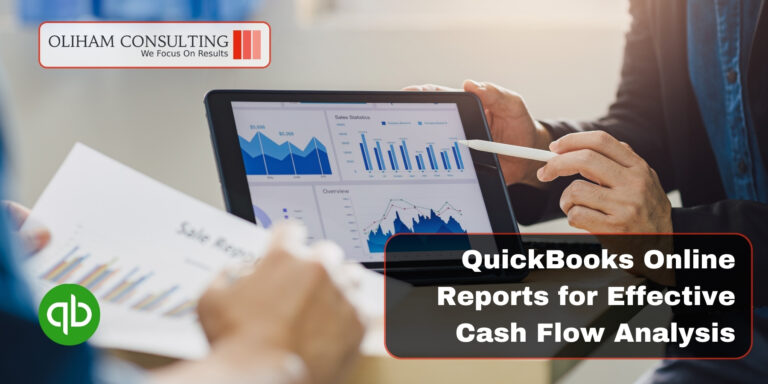Introduction: Understanding the Importance of Accurate Bookkeeping
Accurate bookkeeping plays a crucial role in facilitating sound financial decision making within organizations. It provides businesses with reliable data that enables them to evaluate performance objectively and make informed choices about resource allocation and growth strategies. By recognizing the significance of accurate bookkeeping services, businesses can set themselves up for long-term success in today’s competitive marketplace.
1. Providing a Clear Picture of Financial Health
In today’s fast-paced and ever-changing financial landscape, understanding and maintaining a clear picture of your financial health is crucial. Whether you are an individual or a business, having accurate and up-to-date financial records is essential for making informed decisions and planning for the future.
One of the key tools in assessing your financial health is through the analysis of balance sheets, income statements, and cash flow management.
By having a comprehensive overview of your financial records, you can identify areas that require improvement or adjustment. This allows you to make informed decisions regarding budgeting, investment strategies, debt management, and overall financial planning.
Furthermore, having access to accurate and easily accessible financial information enables you to effectively communicate with stakeholders such as investors or lenders.
In conclusion, providing a clear picture of your financial health is vital for both individuals and businesses alike. By utilizing tools such as balance sheets, income statements, cash flow management systems or seeking professional guidance from experts in the field; you can gain valuable insights into your fiscal position.
a) Tracking Income and Expenses
In the fast-paced world of personal finance, keeping track of income and expenses can be a daunting task. However, with the advent of advanced tracking software, managing your finances has become easier than ever before.
Income tracking software allows individuals and businesses to effortlessly monitor their earnings, ensuring that no source of income goes unnoticed. By using this innovative tool, you can accurately record your income streams, whether it be from employment, investments, or any other source.
Equally important is expense tracking. With the help of expense tracking software, you can efficiently categorize and monitor your expenditures. Gone are the days of sifting through piles of receipts and manually entering data into spreadsheets.
By utilizing income and expense tracking software, individuals and businesses can gain valuable insights into their financial habits. They can identify patterns in spending behavior, pinpoint areas where expenses can be reduced or optimized, and ultimately make informed decisions about their financial future.
In conclusion, embracing technology in the form of income and expense tracking software is a smart move for anyone looking to take control of their finances.
b) Monitoring Cash Flow and Budgeting
Effective cash flow management and budget planning are crucial for the financial stability and growth of any business. With the advancements in technology, monitoring cash flow and budgeting has become more efficient and accurate than ever before.
Cash flow management involves tracking the inflow and outflow of cash within a business. It helps in identifying potential cash shortages or surpluses, allowing businesses to take proactive measures to address these situations.
One of the key benefits of using budget planning tools is their ability to forecast cash flow. By analyzing historical data and taking into account various factors such as sales projections, expenses, and market trends, these tools can generate accurate forecasts for future cash flow.
Furthermore, budget planning tools provide businesses with a centralized platform to track income and expenses, set financial goals, allocate resources effectively, and monitor progress towards those goals.
In conclusion, monitoring cash flow and budgeting are essential components of financial management. Leveraging advanced technologies such as budget planning tools can greatly enhance accuracy, efficiency, and foresight in managing cash flow.
2. Enabling Effective Business Planning and Forecasting
In today’s fast-paced business environment, effective business planning and forecasting are crucial for success. Companies need to have a clear understanding of their financial situation and future projections in order to make informed decisions and stay ahead of the competition.
Budgeting and forecasting services, coupled with advanced financial analysis tools, play a pivotal role in enabling businesses to achieve this level of clarity and accuracy. By utilizing budgeting and forecasting services, businesses can streamline their planning processes, identify potential risks or opportunities, and make strategic adjustments accordingly.
Financial analysis tools further enhance the effectiveness of business planning by providing detailed insights into key performance indicators (KPIs), profitability ratios, and trends.
In conclusion, budgeting and forecasting services along with advanced financial analysis tools are essential components of effective business planning.
a) Identifying Profitability and Growth Opportunities
In today’s competitive business landscape, identifying profitability and growth opportunities is crucial for the success of any organization. To achieve this, businesses need to utilize effective profit analysis tools and implement revenue growth strategies.
Profit analysis tools provide valuable insights into a company’s financial performance by analyzing various factors such as costs, revenues, and profitability ratios. These tools allow businesses to identify areas where they can cut costs, optimize operations, and maximize profits.
In addition to profit analysis tools, implementing revenue growth strategies is essential for sustained success. These strategies involve identifying new markets, expanding product offerings, improving customer retention rates, and enhancing overall customer experience.
By combining the power of profit analysis tools with effective revenue growth strategies, businesses can uncover hidden opportunities for increased profitability and sustainable growth.
b) Assisting with Investment Decisions
Investment decisions can be complex and time-consuming, requiring careful analysis of various factors. This is where investment analysis tools come into play, offering valuable assistance to investors.
These tools provide a comprehensive range of features and functionalities that aid in evaluating potential investment opportunities. From financial modeling and risk assessment to portfolio management and performance tracking, investment analysis tools offer a wealth of information to inform decision-making.
By leveraging these tools, investors can access real-time market data, perform in-depth analysis, and gain insights into the potential risks and returns associated with different investment options.
Moreover, investment analysis tools help streamline the decision-making process by automating repetitive tasks and reducing manual errors. They provide visual representations of data through charts and graphs, making it easier for investors to understand complex financial information at a glance.
In conclusion, investment analysis tools serve as invaluable assistants for investors by providing them with the necessary resources to analyze investments effectively.
3. Facilitating Compliance with Tax Regulations and Reporting Obligations
In today’s complex and ever-changing tax landscape, it is crucial for businesses to stay compliant with tax regulations and reporting obligations. Failure to do so can result in costly penalties and reputational damage. Fortunately, there are tools and services available that can help businesses navigate through these challenges and ensure they are taking care of their tax obligations.
One such tool is automated tax compliance software. This technology utilizes artificial intelligence and machine learning algorithms to streamline the process of managing taxes.
By leveraging automated tax compliance software, businesses can save valuable time and resources that would otherwise be spent on manual calculations and paperwork.
Furthermore, automated tax compliance software provides businesses with real-time updates on changes in tax laws or regulations. Overall, by utilizing automated tax compliance software, businesses can effectively facilitate compliance with tax regulations and reporting obligations. They can minimize the risk of non-compliance while streamlining their processes for greater efficiency.
a) Streamlining Tax Preparation Process
Streamlining the tax preparation process has become a top priority for individuals and businesses alike. With the complexity of tax laws and regulations, it is crucial to find ways to simplify the process while ensuring accuracy and maximizing deductions.
One key aspect of streamlining tax preparation is taking care of tax deductions. Identifying and claiming all eligible deductions can significantly reduce one’s tax liability, ultimately saving both time and money. However, this task can be daunting and time-consuming, especially for those without a comprehensive understanding of the tax code.
By leveraging AI-driven software, individuals no longer need to spend hours sifting through receipts or researching complex regulations. The software can automatically scan documents, extract relevant information, and apply appropriate deductions based on individual circumstances.
Moreover, these AI-powered tools continuously learn from user input and feedback, enabling them to become more accurate over time. They adapt to changing tax laws and regulations, ensuring that users stay up-to-date with any changes that may impact their filings.
In conclusion, streamlining the tax preparation process is crucial for individuals and businesses alike. By utilizing AI-powered software that takes care of tax deductions automatically, taxpayers can save valuable time while maximizing their savings potential.
b) Ensuring Timely Filing and Accuracy
Ensuring timely filing and accuracy is crucial for any organization to maintain compliance and efficiency. By implementing effective systems and processes, businesses can streamline their filing procedures and ensure that all necessary documents are submitted on time.
Timely filing is essential to meet regulatory requirements and avoid penalties or legal consequences. With the help of advanced technology, organizations can automate their filing processes, reducing the risk of human error and ensuring that deadlines are met consistently.
Accuracy is equally important when it comes to filing. Inaccurate or incomplete information can lead to misunderstandings, delays, and potential financial losses.
Furthermore, proper training and education for employees involved in the filing process are vital. Regular audits can also be conducted to identify any gaps or areas for improvement in the filing process.
In conclusion, ensuring timely filing and accuracy is paramount for organizations seeking to uphold compliance standards while maximizing efficiency.
Conclusion: Leveraging Professional Bookkeeping Services for Informed Decision Making
In conclusion, investing in professional bookkeeping services is not just about compliance; it is an investment in the future of your business. By leveraging these services for informed decision making based on accurate financial records and analysis, businesses can pave the way for sustainable growth and long-term success.





